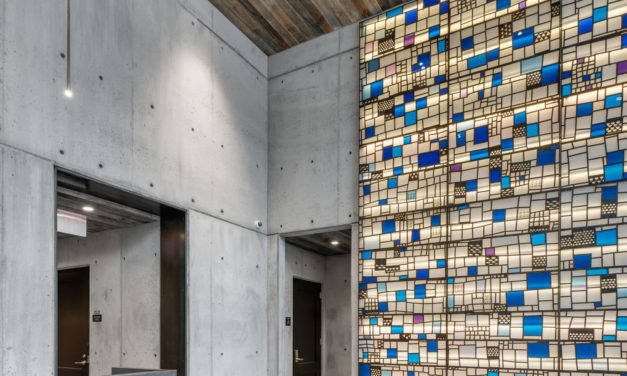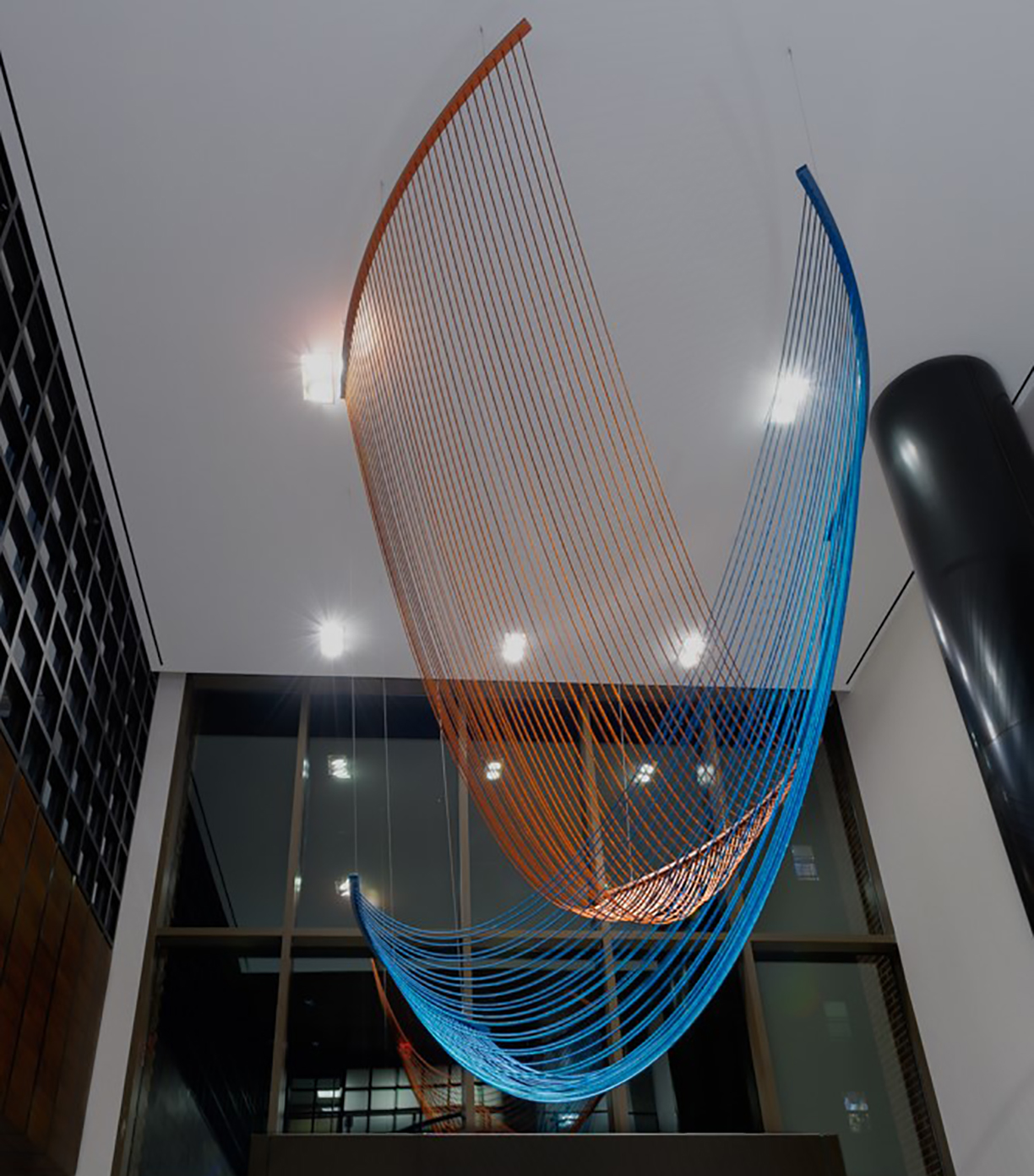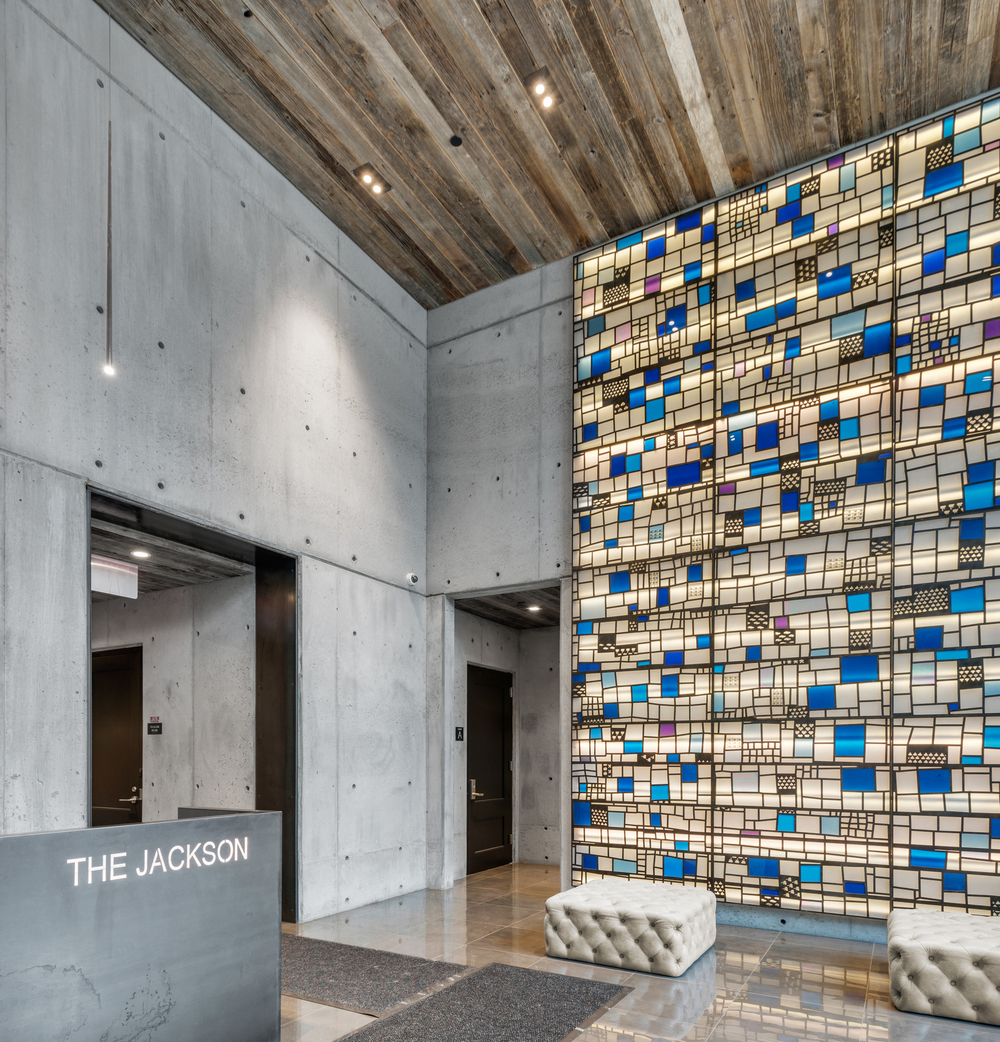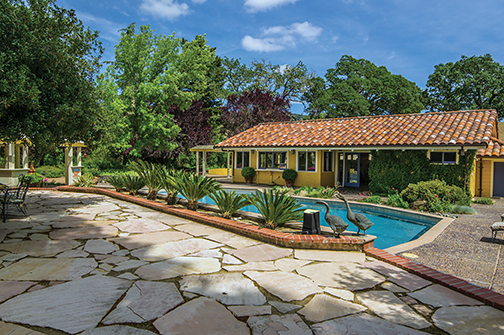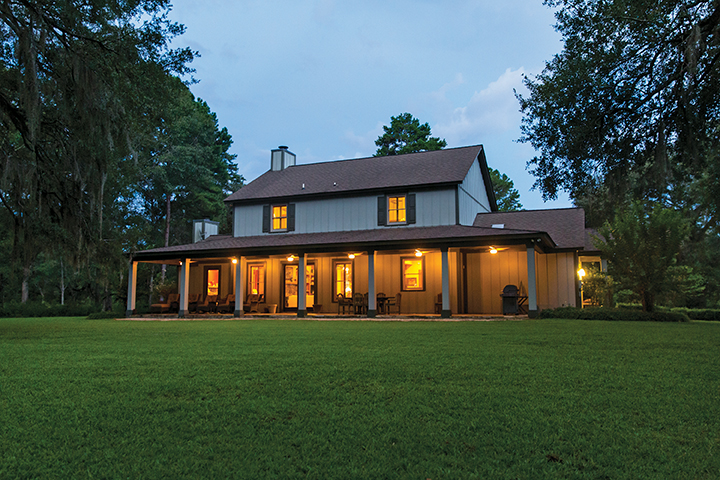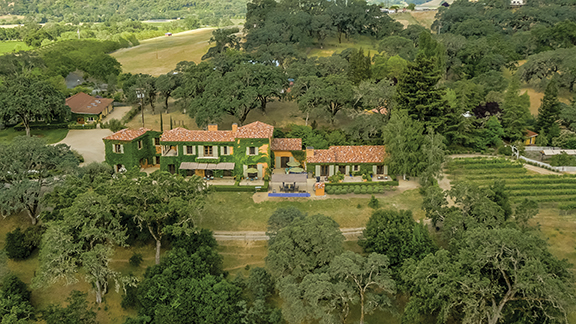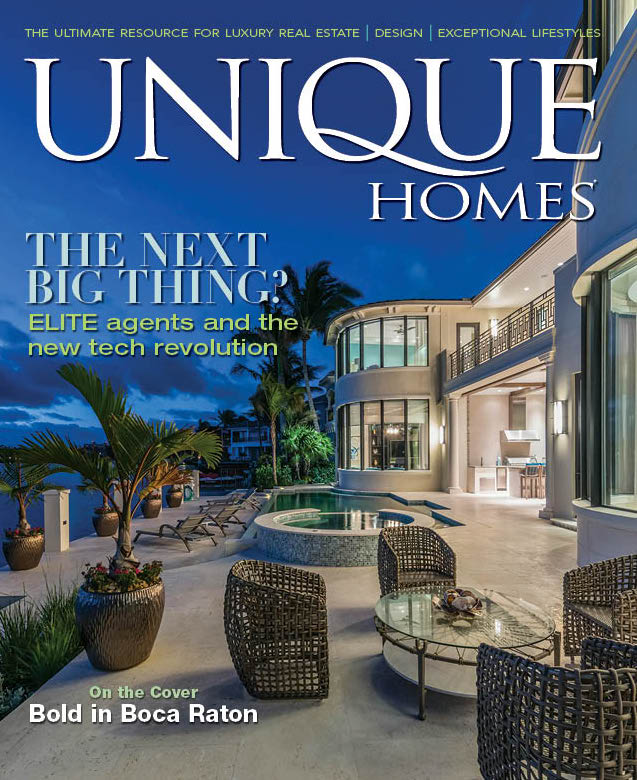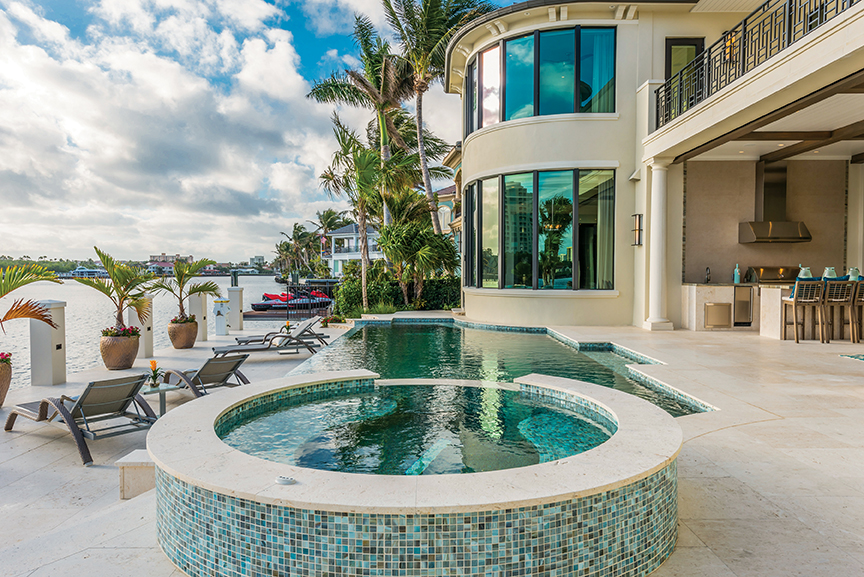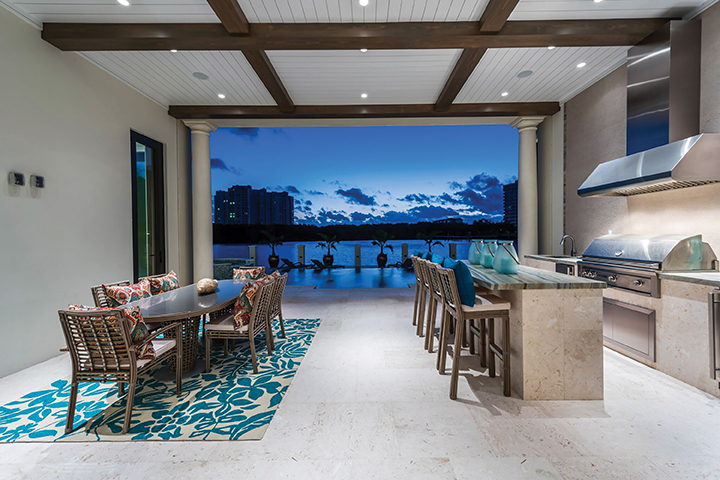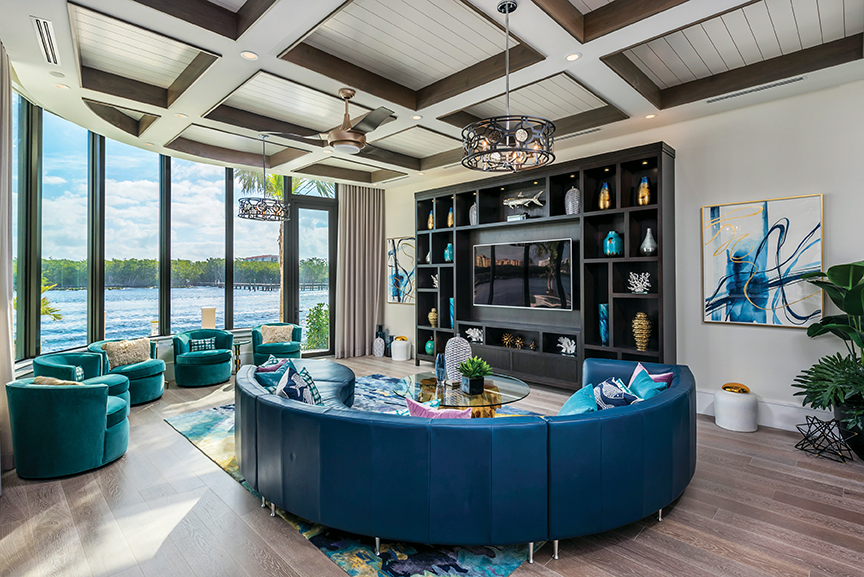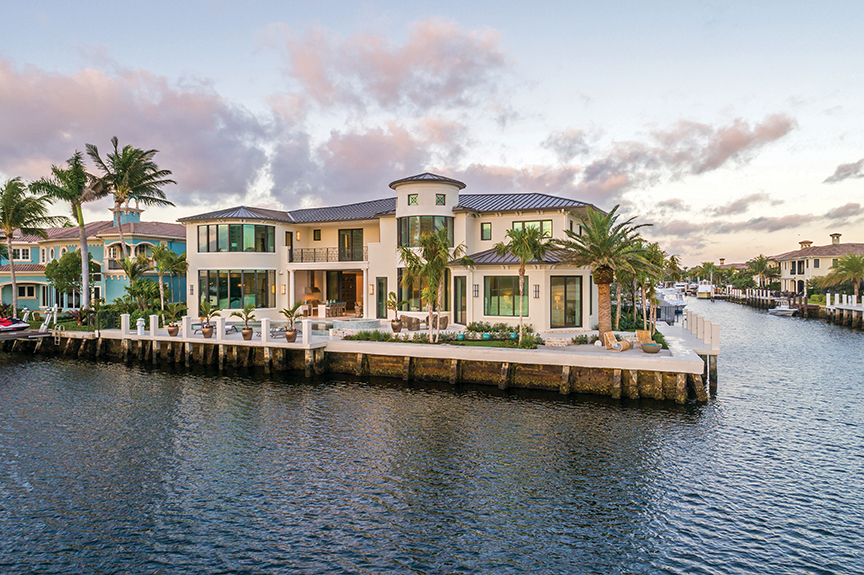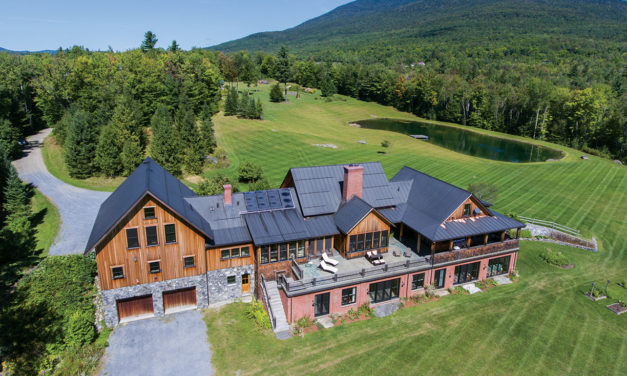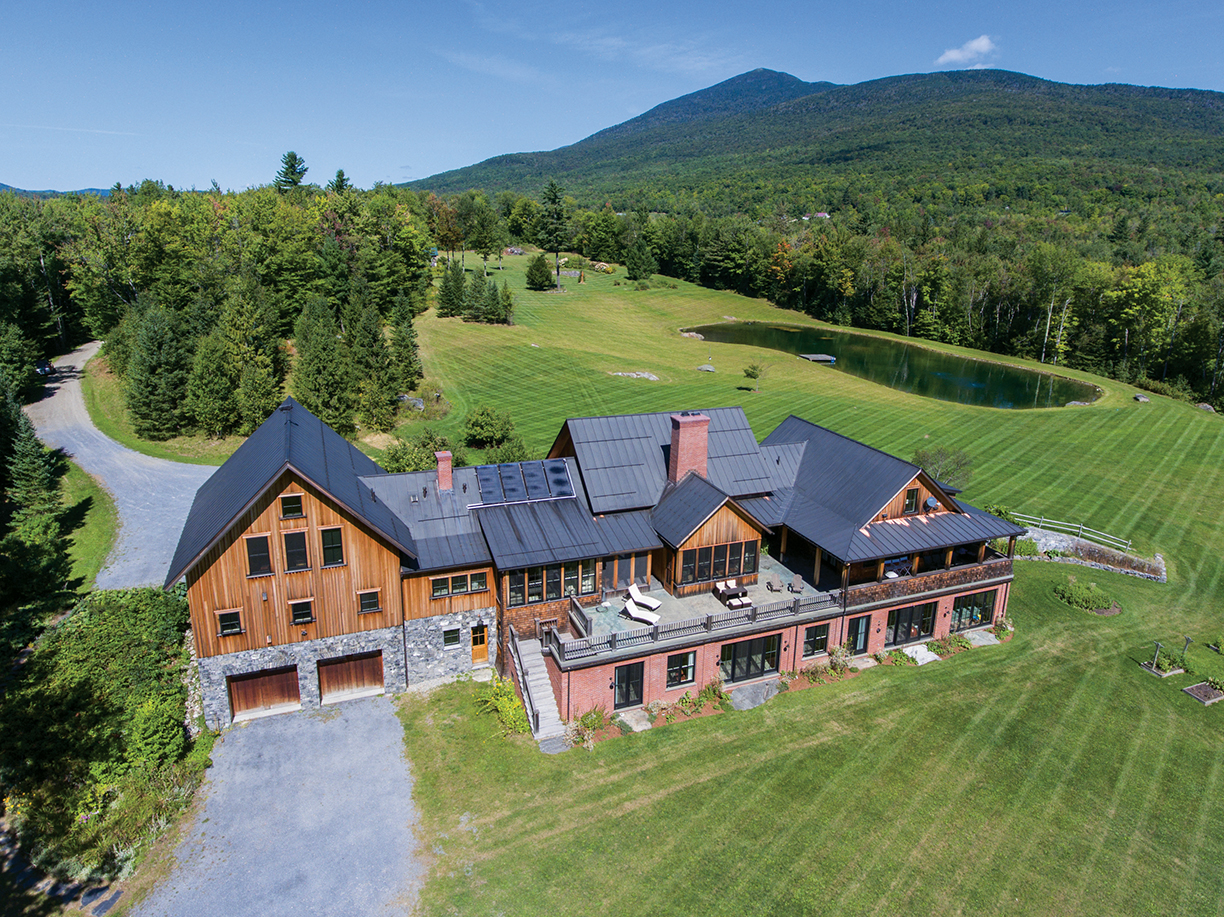By collaborating with retailers of home furnishings, RoOomy gives potential owners a preview of what a room would look like with their choice of furniture. Using a design app on their site, buyers and homeowners can also try out various pieces of furniture or an entire scheme in a room, and the results are presented in 3-D. RoOomy also found a place on Architectural Digest’s list of the 20 best home design and decorating apps.
“Suddenly, virtual reality is making it possible for people to visualize a home before it’s built,” says Alexander Hovnanian, area president for K. Hovnanian at Port Imperial Urban Renewal VI, LLC. K. Hovnanian is innovating the way new construction is sold using virtual reality. Buyers tour Nine on the Hudson, a new project in West New York, New Jersey, while the 278-unit condo building is being constructed. Donning VR goggles they can walk the building and preview their future home as well as the views and patios and decks. Distant buyers use their iPad to link to an Opto tour using goggles supplied by K. Hovnanian. So far, the tours have resulted in more than 80 signed contacts from as far away as California.
What didn’t change dramatically during the tech revolution is the way property searches, which typically still require a specific location or geographic area as a delineator, are conducted. A few brands that cater to the affluent, such as Sotheby’s, allow a search by lifestyle, architecture or amenity without restrictions to a specific location.
Future searches for real estate potentially will bypass conventional portals and give access to an even larger number of properties — despite whether they are listed in the MLS — as blockchain technology becomes more widely adopted. Propify is a new social media search platform for real estate that employs blockchain technology. “The future of tech and real estate will make it easier to find the right property and Realtor and broker no matter where you are located. This will happen quickly and with confidence. There is no doubt that the traditional property search websites will not disappear overnight, but they will not be as aggressive as they once were,” says Leslie, who says the social media aspect of Propify has the most appeal for agents right now.
Blockchain and Distributed Ledger
Seemingly bursting on the scene in the last year, blockchain technology was originally developed as a platform for Bitcoin. But blockchain is applicable for many other uses, and is not to be confused with cryptocurrencies. “Blockchain technology is a digitized way to immutably record and share information. Blockchain-based smart contracts have the potential to transform real estate purchases, sales, leasing, financing and management,” says Marci Rossell, chief economist for LeadingRE and Luxury Portfolio. “Fortunately, the average person doesn’t have to grasp the technological details of how blockchain works; they just need to know what it can do for them.”
Some speculate that blockchain could be as transformative as the Internet was. Rossell compares the current climate to the Dot.com Boom of the late 1990s. “Blockchain is in the early stages of its commercial development and application. I expect that, over the next decade, it will be another Internet Wild West out there, with blockchain-related businesses emerging at a rapid rate. And just like the Dot.com Boom, a few will survive, thrive and transform their sectors — like Amazon. But there will also be many lost fortunes on the ideas that don’t work out,” she says.
Several blockchain platforms for real estate have been introduced, including Ubitquity and Propy.







